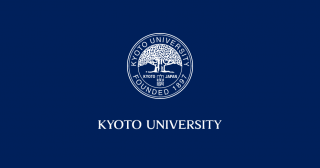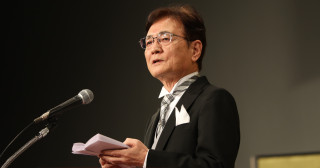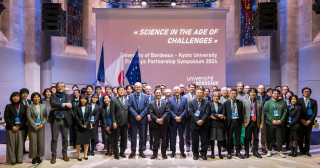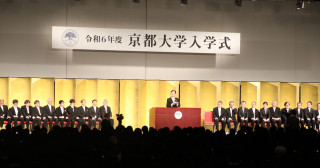As part of the 2017-2018 Kyoto University outbound "multicultural collaborating learning" program, seven KU students participated in a Chinese-language summer school 4 to 26 August at the Chinese University of Hong Kong (CUHK).
The students attended three weeks of intensive Chinese-language lessons, offered at four different levels, enhancing their command of the language. They also took part in fieldtrips -- to Macau and Shenzhen as well as various locations in Hong Kong -- to experience the blend of Chinese and Western cultures and the vibrant local economies.
The Summer School focused on "multicultural collaborative learning", and offered numerous opportunities for KU students to interact with peers from diverse cultural backgrounds. The language classes included students of various nationalities, while the KU-CUHK joint seminar, organized as part of the program in cooperation with the host university's Department of History, had participants from Kyoto and Hong Kong present and exchange views on a wide range of cultural and social topics.

The seven participants from Kyoto U

Joint seminar with CUHK students

Enjoying a night view

Exploring Hong Kong
Reports from participants
Group leader
4th year, Faculty of Letters
Each school day was comprised of morning and afternoon sessions, the former lasting from 9:30 to 12:15, and the latter from 14:30 to 16:15. We learned grammar and conversational skills on alternate days, each from a different teacher.
I was in the highest-level class, where lessons were focused on Chinese etiquette and communication styles. Classes were all held in Putonghua, a version of standard Chinese, but our teachers obviously spoke much more clearly and slowly than the average native speaker. We took vocabulary and comprehension quizzes every day, and did a writing assignment every other day. The program also included two presentations that we had to deliver to demonstrate our understanding of the lessons taught. Each day in class exposed us to nearly five hours of spoken Chinese, and this clearly helped all of us improve our comprehension.
The first week featured an exchange session with students of the CUHK Department of History. Participants from Kyoto and Hong Kong both delivered presentations and together engaged in discussion on a wide variety of topics. Those of us from Kyoto addressed conservation of traditional machiya townhouses, food self-sufficiency of Japan and Hong Kong, and our student life, while the CUHK students' presentations covered the development of their hometown, disappearing aspects of their food culture, and Japanese and Hong Kong bon festivals.
One of the things that struck me as I listened to the participants from CUHK is that they seemed to take far greater pride and honor in their history, culture, and citizenship than we did in ours. This inspired me to reflect on Hong Kong's past and present, and to wonder how having constantly been under the rule of "superpowers" might have contributed to local people's sense of identity
The program also provided me with many bodily experiences that engaged my physical senses, and enabled me to develop my thoughts on questions such as "What is a state?", "What is development?", and "How do humans think and act?" It was indeed an incredibly fruitful three-week period.
I would like to take this opportunity to express my heartfelt gratitude to all the people whom I had the privilege of spending time with in Hong Kong. Xie xie da jia! (Thank you, everyone!)
Anna Matsumoto, deputy group leader
5th year, Faculty of Law
I took part in the 2017 CUHK summer school as one of the approximately 100 participants from across the world, of whom the majority came from Japanese universities. The three-week program was comprised of Chinese-language classes, given at four different levels, as well as fieldtrips to Macau and Shenzhen, and various other activities.
Even as I left for Hong Kong, I was acutely aware of how little time I would be spending in the Chinese territory learning the local language. This feeling stemmed mostly from my earlier overseas experience, in which I stayed in an English-speaking country for nine months, and gained many invaluable insights, including how learning a new language can be a never-ending process.
Based on this understanding, I decided that throughout the program, on every occasion – when I am learning Chinese, in or outside the classroom, interacting with local people, or taking part in a cultural activity -- I would make conscious efforts to gain what was available only from where I was.
Thankfully, each day I spent with this attitude felt three times longer. In fact, when my return flight landed at Kansai International Airport, I could hardly believe that it had only been three weeks since I was last there taking off for Hong Kong.
Although the words and idioms I managed to acquire during that short period were fairly limited in number, the learning process, for me, helped significantly lower the psychological barrier to speaking Chinese, and is certain to serve as a foundation for my future studies. The program has also provided me with a deeper understanding of Hong Kong and a solid, objective perspective on my national identity.
I am extremely grateful for those precious three weeks, and would like to thank everyone at CUHK and KU who has supported me with the program.





